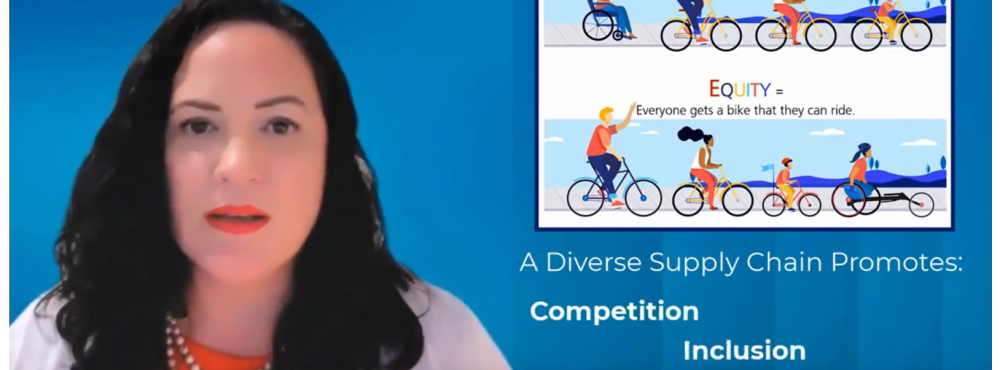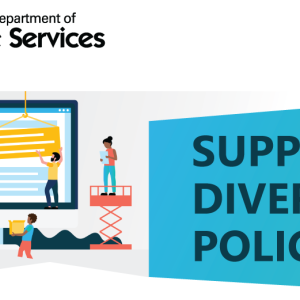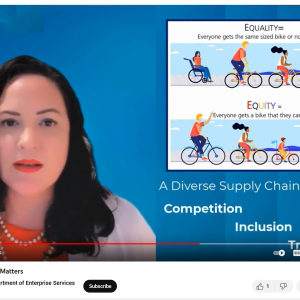Supplier diversity policy will help level the playing field for small, diverse and veteran-owned businesses in Washington
All state agencies must dismantle barriers to their competitive contracts for goods and services

The goal of the supplier diversity policy is to give small, diverse and veteran-owned businesses equitable access to state contracts and to create durable change in state spending with these businesses. The use of small, diverse and veteran-owned businesses by state government has been low for 20 years. In fiscal year 2021, state government spent $817 million on goods and services through DES-managed contracts. Less than 1% of that amount was with businesses that are owned by women, people in racial or socioeconomic minorities, or veterans. Only 6.8% of that amount was with small businesses.
Dismantling barriers to contracting opportunities gives Washington state government access to a wider array of business solutions and helps drive innovation. The success of small, minority-, women-, and veteran-owned businesses makes Washington’s economy and our families more resilient, strengthens our communities and improves the quality of life for all Washingtonians.
"Contracting equity starts with state agency leaders. Our engagement in this work will make Washington state an equitable, antiracist environment where small, diverse and veteran-owned businesses thrive," DES Director Tara C. Smith said.
How state agencies are implementing the policy:
- Transparency: Agencies must post forecasted goods and services procurements and identify the executive leader responsible for supplier diversity work on their websites.
- Accountability: Agencies must prove they are making real changes in their procurement practices in order to keep their delegated purchasing authority for goods and services, as identified through DES' risk assessment. DES will start the next round of risk assessments in 2024.
- Outreach: Agencies must conduct outreach with small, diverse, and veteran-owned businesses to let them know about contracting opportunities.
- Training: All state employees who work with competitive contracts are required to take a DES training about the policy and have access to a step-by-step, interactive handbook. DES also held two introductory sessions for state agencies in late 2022, in partnership with OMWBE. To date, 6,584 state employees have received training or participated in an introductory session.
- Additionally, OMWBE is holding workshops throughout 2023 about specific tools in partnership with DES for agencies to implement the policy.
"Washington’s diversity makes us stronger as a state, and it is only by leveling the playing field that it becomes possible for all Washingtonians to thrive and live healthy and successful lives. We are making real investments to help small and diverse businesses thrive in all areas of Washington state," Gov. Jay Inslee said.
Our partners in this work
DES collected over 1,400 comments from businesses, nonprofits, diversity and equity advocates, state procurement professionals and others.
Our partners in developing this policy include:
- Governor's Subcabinet on Business Diversity
- Office of Minority and Women Business Enterprises
- Office of Equity
- Washington State Department of Transportation
- Washington Department of Veterans Affairs
- DES' Business Diversity Advisory Group
Watch this short video to learn more about the policy and why it matters.

